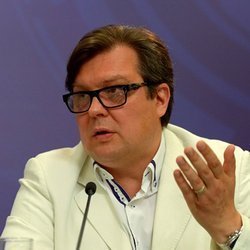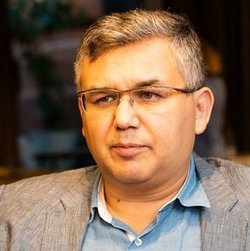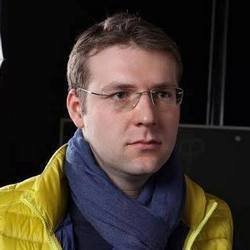“She is a powerful PR tool”: Russia to invite Greta Thunberg to speak in State Duma?
Experts: Third World countries harm the environment the most, not those who criticize Thunberg
First Deputy Chairman of the State Duma Committee on Natural Resources, Property and the Land Relations and “the youngest deputy” Vasily Vlasov invited the famous 16-year-old Swedish environmental activist Greta Tunberg to speak in the State Duma of Russia. However, some parliamentarians did not support the initiative. According to some experts, the world is watching the performance played out in Hollywood fiction and later we will find out about the project's interested parties. Others urge to listen to the problems raised by the Swedish teen, rather than discuss her personality. Realnoe Vremya has investigated how the speech of the 16-year-old schoolgirl at the UN has divided the world into her opponents and supporters.
“We, as representatives of the younger generation, should not remain silent”
State Duma Deputy Vasily Vlasov sent a letter to the Swedish Embassy in Russia: “I’m aware of young people’s concerns in Russia about global environmental issues and how difficult it can be for adult politicians to come to a compromise even on such vital issues. We, as the representatives of the younger generation, should not remain silent when it comes to our future, and we will not allow ourselves to be condemned to extinction. On my behalf, I invite you to give a speech to Russian youth in the State Duma on any date convenient for you,” he wrote.
Anyway, later in the State Duma, they denied that Greta Tunberg was invited to speak in the lower house of the Federal Assembly. One deputy cannot individually invite the environmental activist, said Deputy Chairman of the Committee on Duma Organization and Regulation Larisa Shoygu. Chairman of the Commission on Organization and Regulation of the Moscow Oblast Duma Nikolay Cherkasov also stressed that such decisions are made by the Council of the State Duma: “This is not a private shop.” Nevertheless, in the evening, the Swedish Embassy in Russia said it would give Vlasov's letter to the schoolgirl.
Earlier, Press Secretary of the Russian President Dmitry Peskov, commenting on Greta's speech at the UN, said that “the problems that she raises are reflected in the international policy of our country in some way or another, but the girl should understand that the states are already doing a lot to solve this problem.”
Some truly believe
The experts interviewed by Realnoe Vremya commented on the situation around the speech of the 16-year-old Swede. The head of Political Expert Group, Konstantin Kalachev, sincerely believes the calls of Greta Tunberg:

Kalachev, calling Greta the mouthpiece of ideas, clarifies that it is not she who generates these ideas. But if “part of the ecological community, unfortunately, do not listen to professors and academics, but listen only to provoking girls — well, at least so.” According to the head of Political Expert Group, some people are revealed to him from an unexpected side. “Intolerance in many is in their blood, it is a derivative of our history. People should treat everything calmer and try to listen to, try to understand, not to pay attention to the form. People in our country believe that people with any problems, physical, psychological ones, have to keep mum, to no allow themselves to be seen.” Kalachev doesn't care what Greta's diagnoses are. On the contrary, it is wonderful if these diagnoses make her persistent.
The political expert considers Greta Tunberg's invitation to the State Duma of the Russian Federation as the self-promotion, first of all, of Deputy Vasily Vlasov, about whom nobody had known before. But most of all Kalachev is interested not in this but whether Greta has received the invitation. Maybe she didn't know. The political expert is sure that a speech in the State Duma of the Swedish girl would be useful and a great event.
While others make use of it
Aleksey Martynov, a journalist, political expert and human rights activist saw in the speech of the 16-year-old schoolgirl a result of a big game:

The publicist emphasizes that “the fight for the environment is very big business. There are many interested parties, industry groups and states that are happy to use this tool. No person in sober memory and sound mind can be against the preservation of nature, reducing the environmental burden on the environment from technogenic activities. But fighting for it and talking about it are completely different things.”
According to Martynov, those speak on this topic who exert political or media pressure on certain politicians or even states. And the fight for the environment, for the reduction of man-made load occurs every day. “And if we did not do this, we would have lived as represented in different dystopias: there is nothing to drink, nothing to breathe. Of course, it's not as tragic as all these people try to imagine, clearly exaggerating.”
“Obviously, we will see interested parties at the end of this project, now it is only the beginning of its development. I feel sorry for this girl, she causes associations connected with the end of the world, but, apparently, it is exactly what the directors of this performance tried to achieve. Obviously, they had prepared the child for this. Well, a good Hollywood work! Who is the Vlasov? Why does the Swedish girl need our State Duma? She has other work,” Aleksey Martynov noted.
Political strategist Abbas Gallyamov summarized the conflicting positions of his colleagues:

Russia has nothing to answer to the echo-virus
The head of the Centre for Regional Policy Development, Ilya Grashchenkov, believes that the generation absolutely prepared for the phenomenon of the eco-mission has grown up. “Since childhood, they have been frightened by disaster films, lessons at school, that the world is hanging by a hair. Whether this is true is, of course, a debatable question. The first to respond to Greta's protest were those who understand how the Swedish schoolgirl can accumulate a political resource.”

According to the political expert, the young MP from the LDPR Vlasov invites Greta to the State Duma, of course, realizing that it is unlikely she will accept the invitation. It's just an ironic PR attempt of Zhirinovsky’s party to respond to the European echovirus. “Today our politicians are outdated and being angry, acutely feeling the loss of control over the situation. Therefore, for them, Greta — another demonstration of the change of eras, generating fear of losing control. Is there someone on whom it would be possible to leave the country? No one. We have not brought up our prophets, radical Islam is coming from the East, and radical environmental activism is coming from the West. There is a reason to think and be sad,” Grashchenkov noted.
“How dare you?!”: with tears in the eyes — to the UN
The general public, especially in Russia, learned about the Swedish schoolgirl just a week ago, when Thunberg made the emotional speech about the impending, in her opinion, environmental catastrophe caused by climate change, at the UN summit in New York. Her speech has immediately become widely quoted, and the speech, like Greta herself, has divided people into two camps: some supported her as emotionally, others criticized her no less emotionally.
For already a long time, the schoolgirl has principally refused to go to school on Fridays until the states begin to fully implement the Paris Agreement, staging Fridays For Future strikes against climate change. This her decision, by the way, was supported by thousands of schoolchildren and students around the world, which was regarded by many sceptics as an extra reason to skip classes. Thunberg said from the UN rostrum that with their well-meaning speeches and inaction, politicians have stolen her childhood. In her opinion, the younger generation today is beginning to understand that the adult generation of politicians betrayed them: “How dare you?!” she snapped at the assembled audience with tears in her eyes.
Trump about Greta: “A very happy young girl looking forward to a bright and wonderful future”
The irony of the speech was added by the fact that she asked this question to those who are going to solve environmental problems and generally believe that global climate change can lead to catastrophic consequences. But those who consider the problem created out of thin air and sees behind it a peculiar lobby which would like to make a profit on the reduction of harmful emissions did not listen to her speech.
For example, US President Donald Trump falls into Greta's sceptics. Some believe that it was his presence in the UN building and his absence in the audience when Thunberg spoke caused her “emotionally unstable speech”: on the sidelines of the television cameras, Greta followed the American president with a withering look. The same evening, Trump “trolled” the schoolgirl, calling her “a very happy young girl looking forward to a bright and wonderful future.” Greta responded by adding the phrase to her Twitter profile.
She doesn’t eat meat, does not go to school, suffers OCD
It has been known about Greta for about a year. Last August, then still 15-year-old girl (looking owing to whether refusal from meat or any other diseases like a 12-years-old) organised a solitary picket in front of the buildings of the Swedish Parliament. This immediately attracted the attention of the local press, the schoolgirl then firmly refused to go to school on Friday, in November students around the world began to join this decision.
Many were attracted to Greta and environmental problems not only because she is actually still a child but also the diseases that make her, one way or another, special: from Asperger's syndrome to obsessive-compulsive disorder. However, even this fact has divided and continues to divide the public around the world: some believe that the child should be at school and “she should be treated”, others embrace the rebellion of the schoolgirl who does care about that “she is different”.
Greta has many supporters. A few days before the summit, she initiated a climate strike, which was attended by more than 4 million people around the world. Thunberg's parents write in their memoirs that her illnesses help in the environmental movement, and she almost sees harmful fumes “with her own eyes”. The defenders of children's rights, feminists, radical environmental activists note that Greta, in addition to the environmental agenda, at the same time, draws attention to “special children” or the children with “special needs”. Her illness, as well as age, did not prevent the schoolgirl from talking with former US President Barack Obama and the Pope: observers pay attention to the fact that the girl communicated with the Pope quite normally and with restraint, that is, she can control her emotions. Which, in turn, raised the questions: was her emotional speech at the UN originally so planned or did the schoolgirl have an emotional breakdown?
Some consider Greta Thunberg a “PR project”
Greta's opponents, who are also millions, are divided into those who consider what is happening around her the “mass hysteria” caused by accident, and most of the charges are laid on her parents, who, taking advantage of the emotionally unstable state of the girl, earn money on her, and then, they say, their child may have even more serious mental illness.
There are also those who believe that Greta Thunberg is backed by truly influential forces and a lot of money. The supporters of the conspiracy theory point out that an ordinary schoolgirl would not have been accepted at Davos Forum, where she arrived by train in January this year, and even more so at the UN summit. They are sure, for example, that the Malizia II yacht, by which Greta arrived in New York from Sweden for fundamental environmental reasons, actually belongs to George Soros (or Hillary Clinton), although it is only known that the yacht was provided by a “relative of the Prince of Monaco”. The number of articles explaining why Greta is a PR project has increased almost exponentially in a week —for example, host Vladimir Solovyov believes that “there is a manipulation of public opinion, it is obvious that these are serious business interests, and soon Greta will talk about clean technology, listing the relevant companies”.
A little Hitler, Red Guards and Witch-hunt
The opponents of Thunberg ridicule the refusal to fly on planes (allegedly because planes have a harmful effect on the climate), pointing out that the cost of crossing the Atlantic ocean is not small, and the team of the yacht got back by plane.
Her demand to ban the production of hydrocarbons (including oil) scares the opponents. Greta is called a little Hitler, compared with Red Guards, the Chinese schoolchildren who made the Cultural Revolution in the 1960s and children of the era of “witch-hunt”: during the famous Salem witch trials, for example, at the behest of a 12-year-old girl there were executed dozens of her neighbours, ordinary men and women for the for “the association with Satan”. Obviously, the “haters” of Greta put the main blame for this not on her (“she's just a child”) but on adults who “manipulate her like a puppet”: as it was in China and in Salem. They also note the increasing “infantilization” of politics and public relations.
Those who consider Greta, on the contrary, an excellent symbol of a new era, remind, that she has been far not the first girl on tribune (boys, for some reason, are markedly less). In the Soviet Union, there were known girl activists, 12-year-old Samantha Smith and Katya Lycheva, who spoke with U.S. President Reagan and Secretary General Yury Andropov in order to defuse the international relations. In the 1990s, 12-year-old Severn Cullis-Suzuki from Canada also made a speech from the rostrum of the UN. 16-year-old Laura Hannant also asked the UN to “listen to the voice of children”. The number of such “Grets in the 2000s was a dozen: Ryan Hreljac, the daughter of the founder of Greenpeace Emily Hunter, Autumn Peltier, advocating for clean water since as much as aged 5.
Third World countries harm the most, not those that criticize Thunberg
There are many environmentalists who share Thunberg's views, but some of them are still alarmed by the current situation, primarily the “childish simplification” of a complex problem. They try to draw the attention of both Greta and her fans to the fact that the fight against the same climate warming is still going on and adult politicians are engaged in it.
Besides, it is the civilized Western countries — the United States and a number of European powers, including Russia, that reduce CO2 emissions every year. For example, Russia can reduce greenhouse gas emissions by 70% by 2050. The Third World countries, in particular, India and China, whose leaders do not intend to listen to any well-intentioned voices of “Grets” in the near future, have the greatest harmful impact on the climate.
Anyway, Tunberg is unlikely to speak soon in the Russian State Duma.
“If we listen to every environmental activist or social activist from the rostrum of the State Duma, then we will only deal with this. In my opinion, Greta has not so many proposals that we would not be able to get acquainted with just by going to her Instagram profile,” said the head of the Committee on Ecology and Environmental Protection, Vladimir Burmatov.
In turn, Head of the Duma Committee on Control and Regulations Olga Savastyanova expressed the opinion that “the Deputy has no right to invite [someone] to the plenary session, as well as to the State Duma Council,” TASS reports.